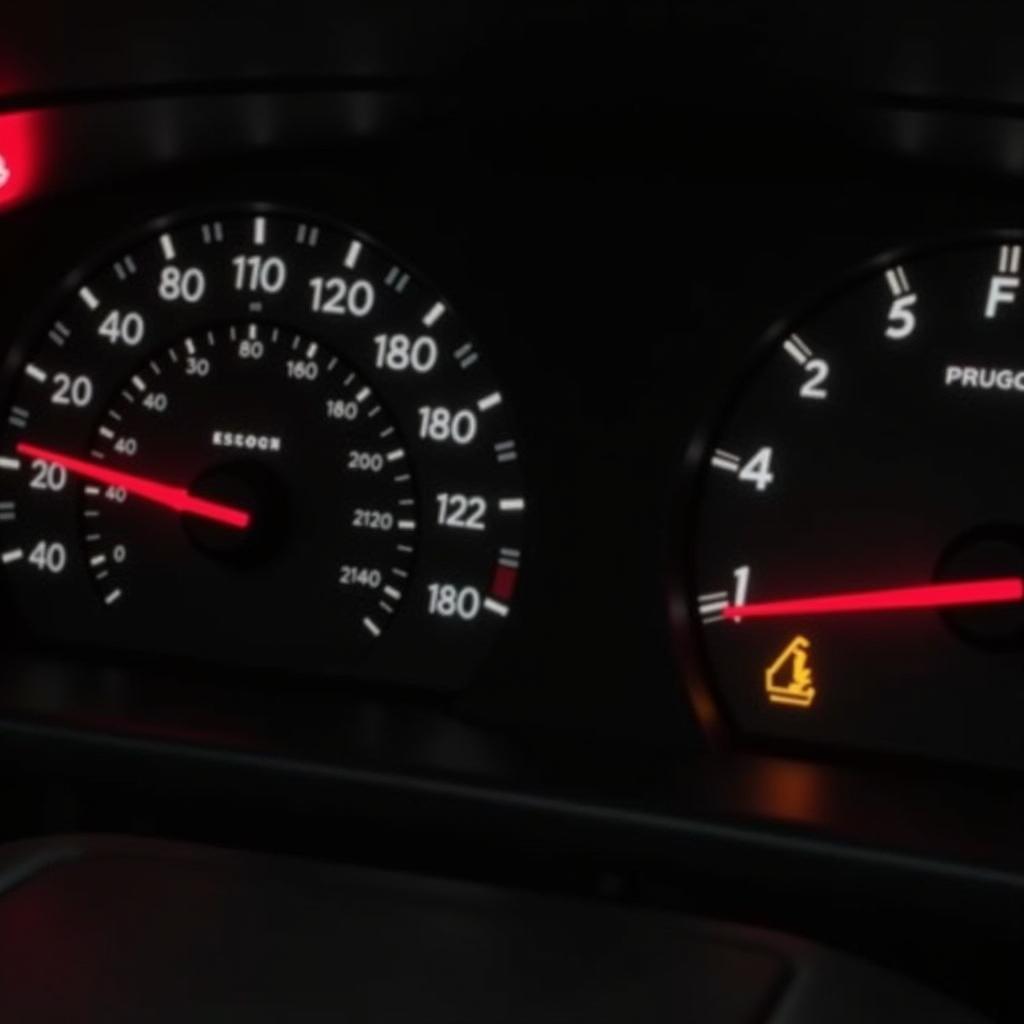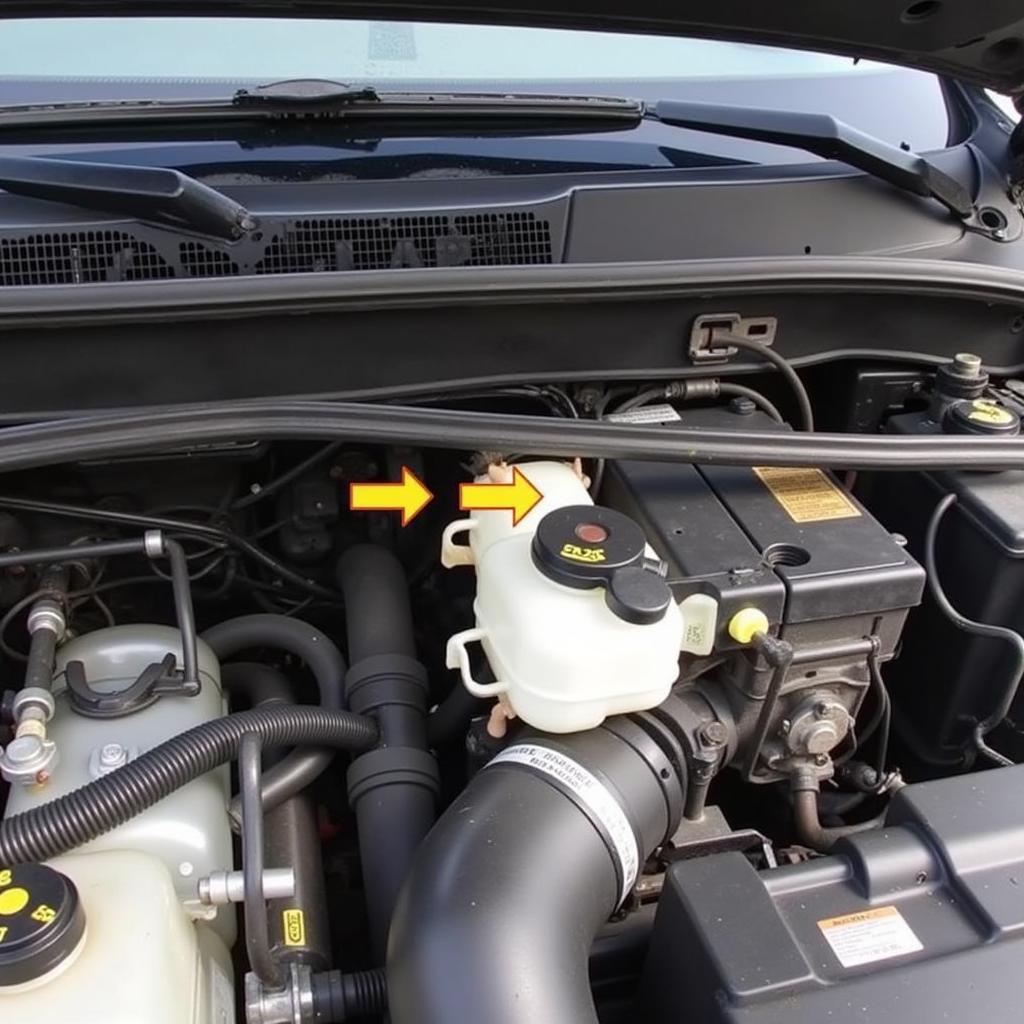The brake warning light on your 1995 Jeep Grand Cherokee dashboard is a crucial safety feature, designed to illuminate if the vehicle’s onboard computer detects an issue within the braking system. While it can be alarming to see it lit, understanding the potential causes can help you take the right steps towards a solution. This article will guide you through common reasons behind a lit brake warning light on a 1995 Grand Cherokee, potential troubleshooting steps, and when to consult a professional mechanic.
 1995 Grand Cherokee brake warning light on dashboard
1995 Grand Cherokee brake warning light on dashboard
Common Causes of a Lit Brake Warning Light
Several factors can trigger the brake warning light on your 1995 Grand Cherokee. Some of the most frequent causes include:
- Low Brake Fluid: This is the most common culprit. Brake fluid is essential for transmitting force when you press the brake pedal, and a leak or low fluid level can significantly impact braking performance.
- Worn Brake Pads: Brake pads naturally wear down over time. When they reach a certain level of wear, the brake pad wear indicator will make contact with the rotor, triggering the warning light.
- Faulty Brake Light Switch: The brake light switch activates your brake lights when you press the pedal. A malfunctioning switch can disrupt this signal and illuminate the warning light.
- ABS Issues: If your 1995 Grand Cherokee is equipped with an Anti-lock Braking System (ABS), a problem with the ABS module or wheel speed sensors could be the culprit behind the illuminated warning light.
- Parking Brake Engaged: While seemingly obvious, it’s easy to overlook. Ensure your parking brake is fully disengaged, as leaving it even slightly engaged can trigger the warning light.
Troubleshooting the Brake Warning Light
Before heading straight to a mechanic, there are a few checks you can perform yourself:
-
Check the Brake Fluid Level: Locate the brake fluid reservoir under the hood (refer to your owner’s manual if unsure). If the fluid level is below the “MIN” mark, add the appropriate brake fluid (DOT 3 or DOT 4, as specified in your manual) to the “MAX” line. However, be cautious – if the reservoir is consistently low, it’s crucial to investigate for potential leaks.
-
Inspect the Brake Pads: Visually examine your brake pads through the wheel spokes. If you see less than ¼ inch of friction material remaining, it’s time for a replacement.
-
Examine Brake Lines and Hoses: Carefully inspect the brake lines and hoses running along the undercarriage of your vehicle. Look for any signs of cracks, leaks, bulges, or corrosion. If you notice any damage, immediate replacement is crucial to ensure safe braking.
“Remember, even minor leaks in the brake system can lead to significant brake failure. If you’re uncomfortable performing these checks yourself, consult a qualified mechanic immediately.” – John Miller, Certified Automotive Technician
When to Consult a Mechanic
While the steps above address common issues, some situations warrant professional attention:
- Persistent Warning Light: If the brake warning light remains illuminated after addressing low fluid levels or evident problems, it indicates a deeper issue requiring professional diagnosis.
- Soft or Spongy Brake Pedal: This is a dangerous sign of air in the brake lines or a failing master cylinder, demanding immediate professional attention.
- Unusual Noises When Braking: Grinding, squealing, or clicking sounds when applying the brakes can indicate serious problems with your brake calipers, rotors, or pads.
 Mechanic inspecting the brake system of a 1995 Jeep Grand Cherokee
Mechanic inspecting the brake system of a 1995 Jeep Grand Cherokee
Conclusion
The brake warning light in your 1995 Grand Cherokee is a vital safety indicator, and ignoring it could have serious consequences. By understanding the potential causes and performing basic troubleshooting, you can often identify the problem. However, always err on the side of caution and consult a qualified mechanic for any persistent issues or if you are uncomfortable working on your vehicle’s brake system. Your safety and the safety of others on the road should always be the top priority.


